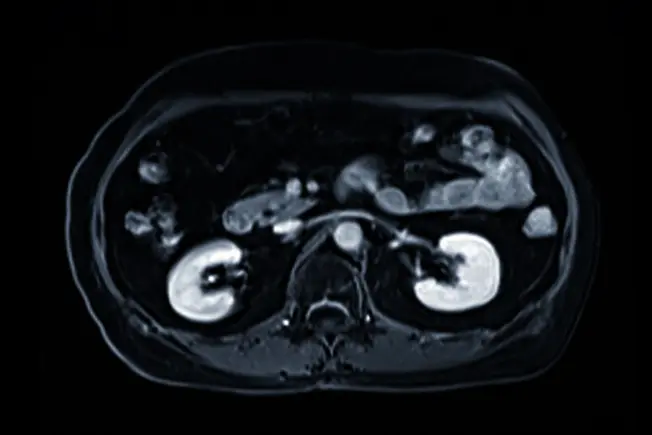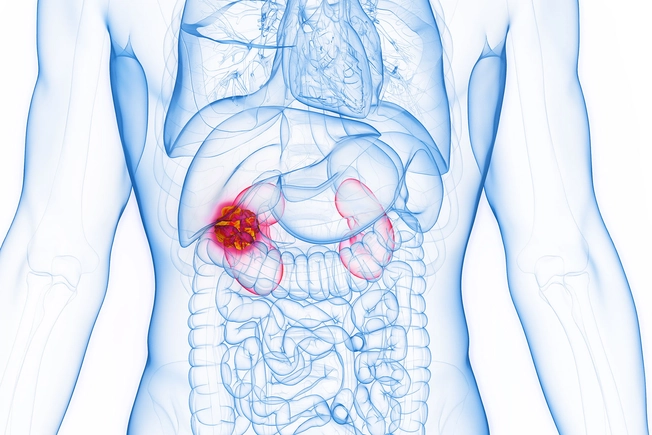- Overview
- Causes, Risks & Prevention
- Symptoms & Types
- Tests & Diagnosis
- Your Cancer Care Team
- Treatment & Side Effects
- Treatment Support
- Living With
- Remission & Recurrence
- Support & Resources
- Appointment Prep
- View Full Guide
Symptoms of Kidney Cancer


Understanding Kidney Cancer
Kidney cancer is when faulty cells grow out of control and form growths called tumors on one of both of your kidneys. It may not show any obvious signs, especially in the early stages. But it's a good idea to talk to your doctor if you notice any of the symptoms.

Types of Kidney Cancer
The two main types of kidney cancer are renal cell carcinoma and transitional cell carcinoma. Renal cell is the most common.

Risk Factors
Men are more likely to develop kidney cancer than women. Risk factors include smoking, obesity, high blood pressure, and family history.


Treatment Options
Treatments for kidney cancer include surgery, targeted therapy, immunotherapy, chemotherapy, and radiation therapy. The choice depends on the cancer's type, stage, and your overall health.

Watchful Waiting
For smaller tumors, your doctor may recommend watchful waiting. This means the doctor will closely monitor your condition without providing treatment unless symptoms change.

Surgical Treatments
Surgery is the most common treatment for kidney cancer. The surgeon may remove part or all of the kidney, depending on the tumor size and location.

Advanced Treatments
For advanced kidney cancer, doctors often use immunotherapy. This treatment boosts your immune system to fight your cancer type. Another approach is targeted therapy, where you take drugs that are made to block the proteins and blood vessels that your kidney cancer needs to grow.
Photo Credits:
1) Radiological Imaging/Getty Images
2) Science Photo Library/Getty Images
3) Moment/Getty Images
4) Wasan Tita/Getty Images
5) Natali _ Mis/Shutterstock
6) Peakstock/Shutterstock
7) Gumpanat/Shutterstock
8) Billion Photos/Shutterstock
SOURCES:
Urology Care Foundation: “Kidney Cancer?”
American Cancer Society: "Kidney Cancer,” “Kidney Cancer,” “Kidney Cancer Signs and Symptoms,” “What Is Kidney Cancer?”
Cleveland Clinic: “Kidney Cancer Overview.”
Moffitt Cancer Center: “Where Does Kidney Cancer Metastasize To?”
Christopher G. Wood, MD, professor of urology, MD Anderson Cancer Center.
The Journal of Urology: “Sex differences in renal cell cancer presentation and survival: an analysis of the National Cancer Database, 1993-2004.”
American Society of Clinical Oncology: "Kidney Cancer Guide."
RadiologyInfo.org: "Professions in Diagnostic Radiology."
Urology Care Foundation: "Kidney Cancer."
Christopher G. Wood, MD, professor of urology, MD Anderson Cancer Center.
National Kidney Foundation: "Kidney Cancer: Treatment."
Mayo Clinic: "Kidney Cancer."
Johns Hopkins Medicine: "Active Surveillance for Kidney Cancer."